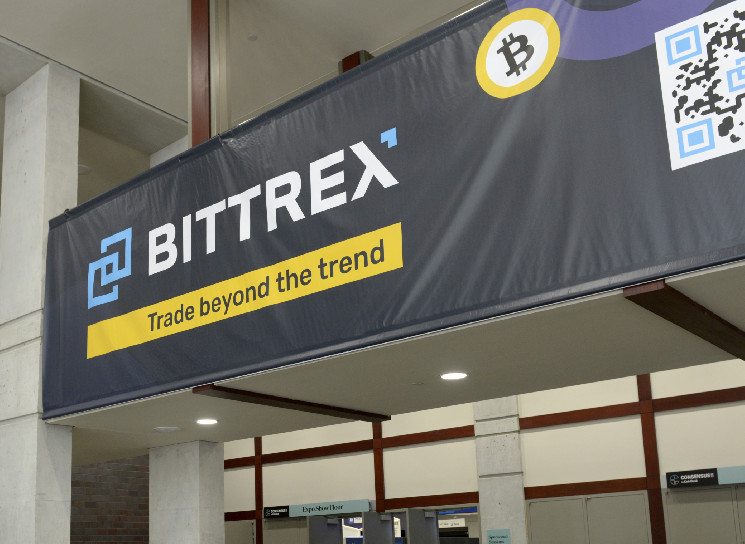Crypto Exchange Bittrex to Pay $30M in US Treasury Sanctions Settlement

Crypto exchange Bittrex settled charges alleging it inadvertently violated federal sanctions with the U.S. Treasury Department, agreeing to pay just under $30 million in fines and keep a closer eye on its compliance program.
The U.S. Treasury Department’s Office of Foreign Assets Control (OFAC), the federal government’s sanctions enforcer, and the Financial Crimes Enforcement Network (FinCEN), Treasury’s money laundering watchdog, announced the settlements on Tuesday. Alongside the monetary penalties, Bittrex has already taken remedial action to correct these issues, OFAC said.
Between 2014 and late 2017, Bittrex allowed around 1,800 people in sanctioned jurisdictions – including Iran, Cuba, Sudan, Syria and Crimea – to conduct more than 116,000 transactions worth roughly $260 million through its platform, according to the settlement. The Seattle, Washington-based exchange has since taken action to better comply with sanctions blacklists.
OFAC has a number of comprehensive sanctions actions, prohibiting U.S. persons – defined as anyone on U.S. soil and U.S. citizens located abroad – from interacting with or providing services to people in these jurisdictions.
Bittrex acknowledged years ago that it had allowed users from some sanctioned jurisdictions, such as Iran, to sign up to its platform. The exchange reached out to some of these customers in 2019 to offer to return their funds.
In a company statement, Bittrex said that it maintained anti-money laundering and sanctions compliance processes, and tapped unnamed third parties and service providers to assist it with verifying accounts and screen for sanctions compliance.
“As a growing company, during the period in question, we routinely assessed and improved these functions,” the statement said.
OFAC said there were a number of mitigating factors, including the fact that Bittrex was “a small and new company” at the time and the company “provided substantial cooperation” with OFAC’s investigation.
“In response to the Apparent Violations, Bittrex swiftly took a series of subsequent remedial measures that significantly curtailed the Apparent Violations,” OFAC said, including blocking the IP addresses tied to sanctioned jurisdictions, restricting sanctioned jurisdiction account holders and using new tools to improve compliance.
The maximum possible penalty for the OFAC allegations could have exceeded $35 billion, OFAC said, but given the various factors, the final fine is just over $24 million.
SARry
While OFAC focused on the alleged sanctions violations, the FinCEN settlement focused instead on suspicious activity reports (SARs) that the regulator alleges Bittrex failed to file during that same time period.
Bittrex “failed to file” SARs tied to 200 transactions moving more than $140,000 worth of cryptocurrency, and 22 transactions touching over $1 million, FinCEN said.
“Bittrex failed to implement effective transaction monitoring on its trading platform, relying on as few as two employees with minimal anti-money laundering training and experience to manually review all of the transactions for suspicious activity, which at times were over 20,000 per day,” FinCEN said.
FinCEN fined Bittrex $29.8 million, but said it would credit the exchange’s $24 million OFAC fine, meaning the company will only pay an overall total of just under $30 million.
In its statement, sent through a company attorney, Bittrex said it was “pleased” to have settled the charges.
“The settlement provides full resolution of both OFAC’s inquiry into transactions in sanctioned jurisdictions that occurred predominantly through 2017, and FinCEN’s assertion that Bittrex did not fully implement all of its Anti-Money Laundering Program controls through 2018,” the statement said. “… Importantly, both FinCEN and OFAC acknowledge that Bittrex’s longstanding responsive remedial efforts have significantly curtailed the risk of continued violations.”






 Bitcoin
Bitcoin  Ethereum
Ethereum  Tether
Tether  USDC
USDC  TRON
TRON  Dogecoin
Dogecoin  Cardano
Cardano  Monero
Monero  Bitcoin Cash
Bitcoin Cash  Chainlink
Chainlink  LEO Token
LEO Token  Stellar
Stellar  Zcash
Zcash  Litecoin
Litecoin  Hedera
Hedera  Dai
Dai  Cronos
Cronos  OKB
OKB  Tether Gold
Tether Gold  Ethereum Classic
Ethereum Classic  KuCoin
KuCoin  Cosmos Hub
Cosmos Hub  Gate
Gate  Algorand
Algorand  Dash
Dash  VeChain
VeChain  Stacks
Stacks  Tezos
Tezos  Decred
Decred  TrueUSD
TrueUSD  IOTA
IOTA  Theta Network
Theta Network  Basic Attention
Basic Attention  NEO
NEO  Synthetix
Synthetix  Qtum
Qtum  0x Protocol
0x Protocol  Ravencoin
Ravencoin  DigiByte
DigiByte  Zilliqa
Zilliqa  Nano
Nano  Holo
Holo  Siacoin
Siacoin  Numeraire
Numeraire  Waves
Waves  Ontology
Ontology  Status
Status  Enjin Coin
Enjin Coin  BUSD
BUSD  Hive
Hive  Pax Dollar
Pax Dollar  Lisk
Lisk  Steem
Steem  Huobi
Huobi  OMG Network
OMG Network  Bitcoin Gold
Bitcoin Gold  NEM
NEM  Augur
Augur